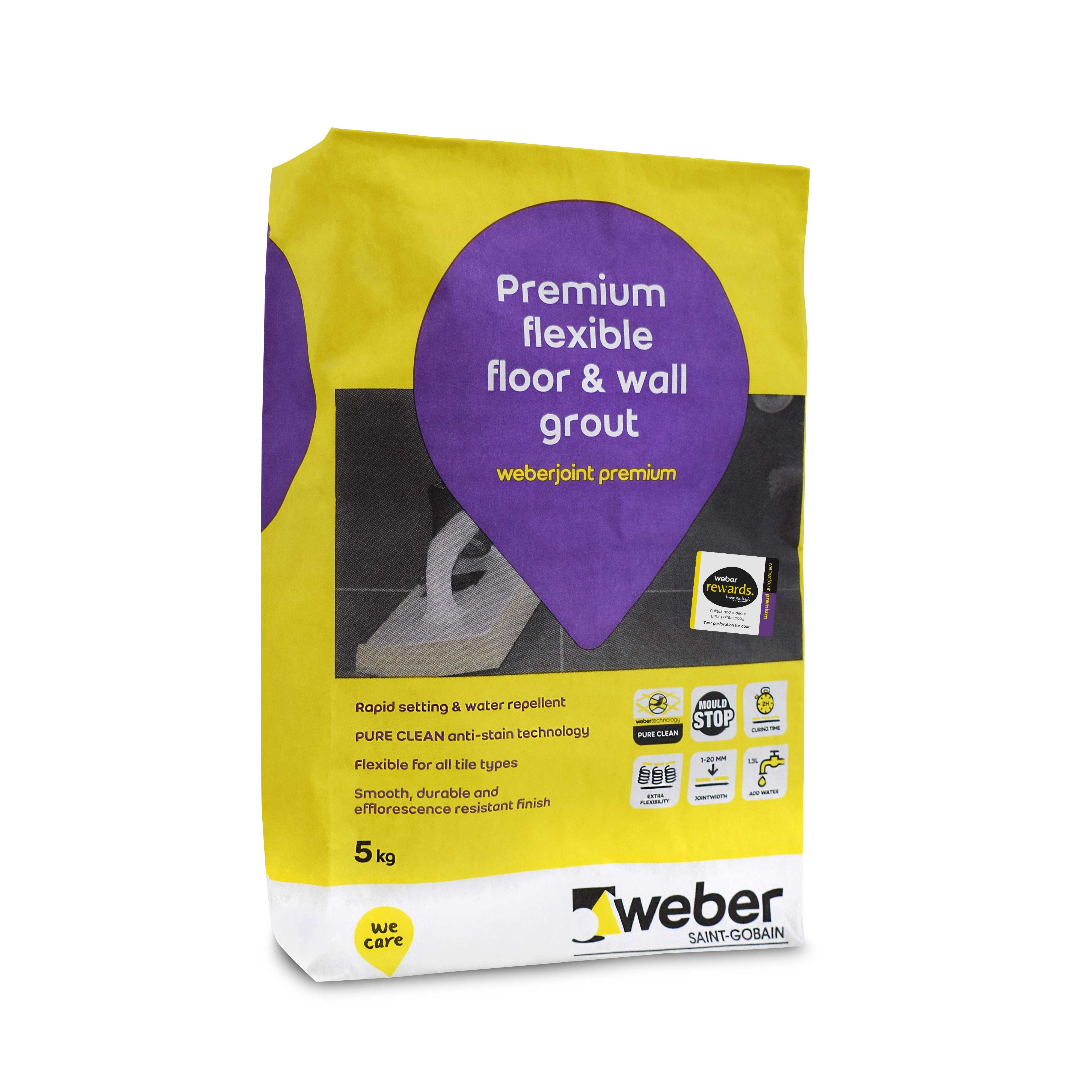What Grout To Use For Outdoor Tile?
When installing outdoor tiles, it’s crucial that you use the right materials to pack and protect the joints between them.
However, selecting the correct type of grouting and equipment to aid successful tile installation can be difficult for the untrained eye.
With that in mind, at Atlas Ceramics, we’ve pulled together a quick and easy guide to the different types of outdoor tile grout and which one you should use for your exterior tile area.
What Is The Purpose Of Grout?
The purpose of grout is both aesthetic and practical.
It forms a pleasing, consistent finish between tiles and protects the tiles’ integrity by preventing dirt and water from infiltrating their foundations.
Additionally, grout can also prevent floor tiles from moving while also accommodating the expansion caused by temperature changes. This reduces the risk of warping and other structural damage occurring.
Ultimately, well packed, well-drained outdoor floor tiles don’t require the use of grout; however, when applied, it provides an extra layer of protection.
Do Outdoor Tiles Require Special Grout?
Yes. Fundamentally, the type of grout you use must be approved for outdoor use, as even fully cured indoor tile grout won’t provide a weather-resistant finish.
As such, choosing the correct grout can be the difference between a long-lasting outdoor tiled surface and one that rapidly declines.
Thus, we recommend using one of three types:
- Epoxy
- Cement-based
- Pre-mixed
Different Grout Types For Outdoor Floor Tiles
Epoxy Grout
Epoxy grout is an impressively strong adhesive that consists of epoxy resin and a filler powder.
Particularly useful for outdoor grouting, it is waterproof, stain-resistant, resistant to harsh chemicals and durable. As such, it is unlikely to shrink, crack or become discoloured.
However, for all its benefits, epoxy grout is more expensive and more difficult to install than other types of grout and what’s more, it can leave a chalky white residue on the tile surface if excess grout overflows the grout joints.
Cement-based grout
Cement-based grout can be produced in a variety of different colours, allowing those who employ it to install grouting that matches their tiling.
While structurally solid, the porous nature of cement grouting means that it is liable to absorb moisture and dirt over time, causing discolouration and damage.
However, cement-based grouting is less expensive and easier to apply than its epoxy counterpart.
Pre-mixed grout
Pre-mixed grout is the simplest and most DIY-friendly grout variant available.
As it is pre-prepared, DIY lovers can start grouting immediately, and, what’s more, many pre-mixed grouts contain latex and/or urethane which means they won’t need an additional layer of sealant.
If you’re only grouting a small area, pre-mixed grout can also offer an affordable alternative to epoxy or cement-based grout as it comes in a variety of quantity sizes.
However, for larger outdoor applications, it can be more expensive than cement.
Which Grout Is Best For Outdoors?
Epoxy grout is the ideal choice when you’re installing outdoor floor tiles.
Its superior durability and weather resistance make it the perfect, long-term filler for grout joints.
Moreover, as long as cement grout has appropriate features it can be a cheaper and equally efficient method.
Other Products That Outdoor Tile Installations Require
Adhesive
If you’re laying your outdoor floor tiles on a more water-absorbent foundation, such as cement, plywood or plasterboard, applying the correct adhesive is an important addition to their installation.
Not only does it help provide the best possible waterproof foundation upon which your tiles can sit, but it also helps ensure that your tiles are securely and properly fixed to the base layer.
Sealant
Sealant is another material integral to the protection and extension of your outdoor floor tiles lifespan; it is applied to your tile’s grouting once it has fully dried and set.
Its purpose is to provide a protective barrier against water, dirt and corruption and is particularly vital if you have chosen to use cement for your grout lines.
That being said, if you would like to add an extra layer of defence to your epoxy or pre-mixed grout, a sealant can still be very beneficial.
Primer
A primer is a liquid that contains either epoxy, latex or polyurethane. It is used to create an adhesive, thick bed finish to which waterproofing adhesives or fully cured screed can be applied.
Moreover, if your foundation layer is porous by nature, it may absorb some of the adhesive or screed mixes and weaken the resulting bond without the presence of a primer.
FAQs
What is the best waterproof grout?
The best grout for waterproofing is epoxy grout.
Due to its inherent weather resistance, epoxy grout is waterproof and more resistant to degradation.
Why is grout important for tiling?
It is important to apply grout to tile joints because it stops them from moving and damaging each other. Likewise, grout also helps to prevent water and dirt from infiltrating beneath the tiles and causing damage.
How do I weatherproof outdoor grout?
Grouts such as epoxy do not necessarily require additional weatherproofing, although they can benefit from the extra layer of protection. However, some concrete grouts need an extra line of defence.
This can be achieved by applying a durable, weather-resistant adhesive to your grout joints once they have fully cured.


























































